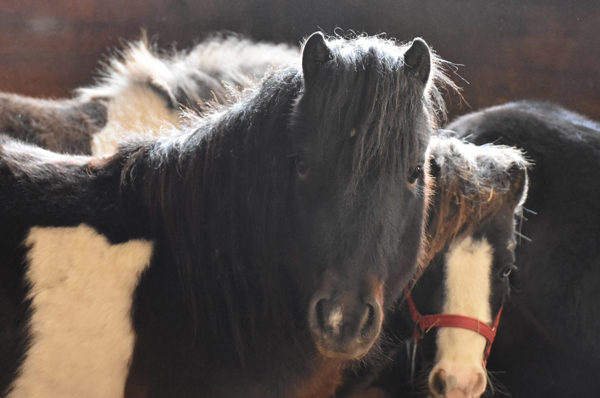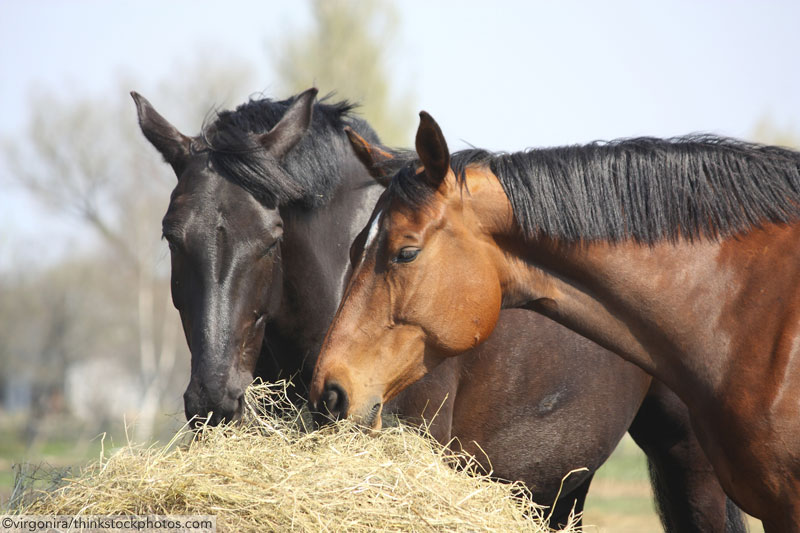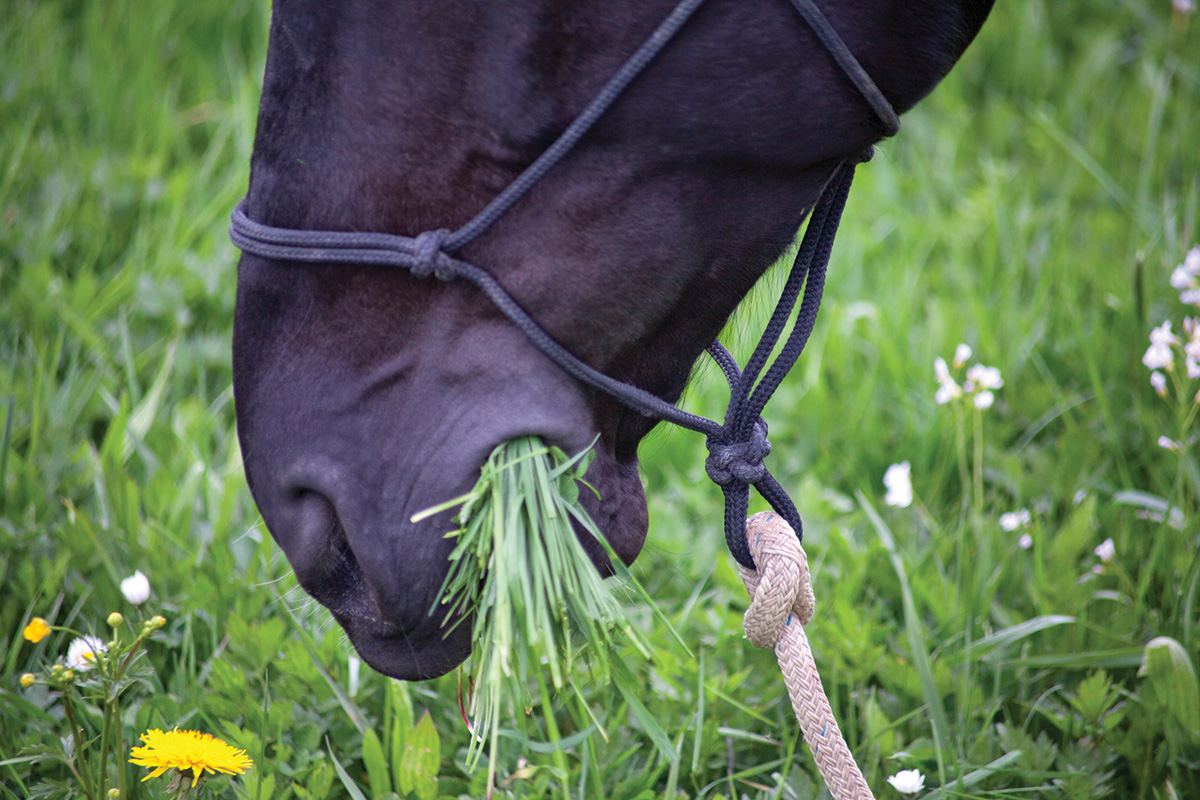 Hello, spring! Before your mind gallops off full of plans for riding adventures, your horse’s health needs a bit of spring cleaning. Here are some important spring horse care tips you might need to think about now so that your horse is good to go.
Hello, spring! Before your mind gallops off full of plans for riding adventures, your horse’s health needs a bit of spring cleaning. Here are some important spring horse care tips you might need to think about now so that your horse is good to go.

1. Vaccines
Vaccines are vital to your horse’s health because they train his immune system to fight off infection from specific diseases, helping to keep him healthy all year round. Typically, horses get vaccinated every spring. The specific vaccines your horse receives will depend on his age, where he lives, and how often he’s in contact with other horses. Your veterinarian will know exactly which vaccines he needs, but there are a few that every horse should get at least once a year.
Most vaccines, like those for rabies and tetanus, are injections given in your horse’s muscle, usually on the side of his neck. When your veterinarian comes to give vaccines, make sure your horse is well-groomed and his neck is clean. But don’t worry; most horses hardly react to a shot. Just imagine it’s like a pesky fly bite—over in seconds.
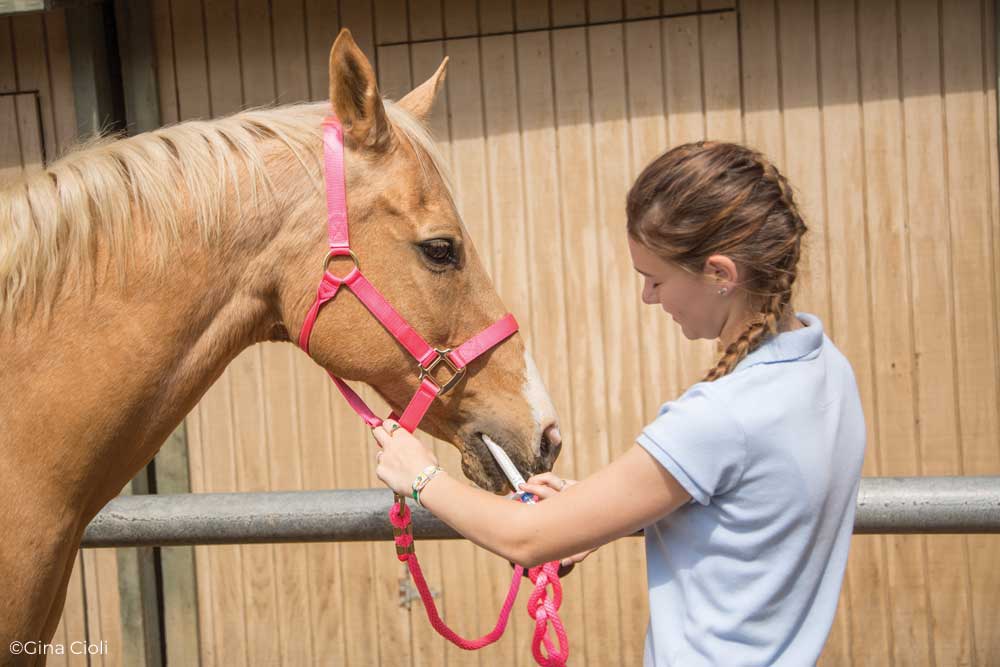
Your vet should test your horse to see what kind of deworming treatment is necessary.
2. Deworming
Horses frequently pick up parasites, commonly called “worms,” from grazing on pasture. These worms live in a horse’s stomach or intestines, and severe infestations can cause diarrhea and weight loss. These symptoms are most often seen in younger horses that haven’t yet developed a strong immune system to fight off parasites.
The eggs of these worms are passed in the horse’s manure, then hatch and attach themselves to the grass so they are easily eaten by horses. This is where they enter the gut and start their life cycle all over again.
With warmer weather, your horse is likely spending more time out on pasture. This increases his risk of parasite infection and he may need treatment with a deworming medication, which kills the parasites in his gut. However, not all horses need this treatment.
The best way for your veterinarian to tell if your horse needs treatment is by taking a sample of his manure and looking at it under the microscope to count the parasite eggs. Typically, if a lot of eggs are present, your horse should be dewormed; if just a few eggs are seen, he doesn’t need treatment.
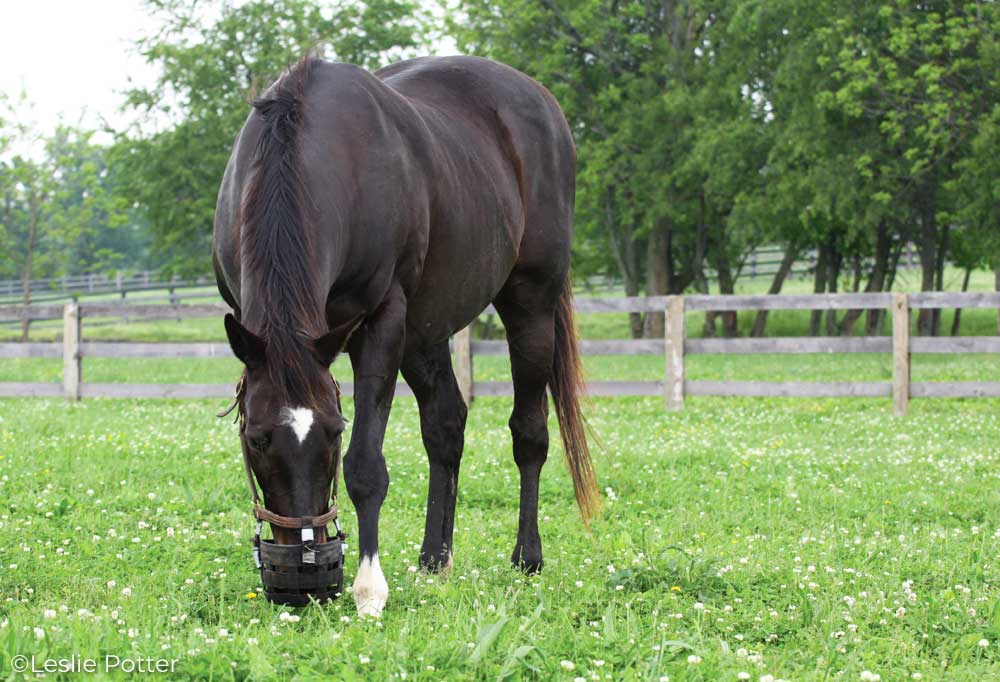
A grazing muzzle keeps your horse from overindulging on rich spring grass.
3. Gradual Grazing
With the sun and extra rain that spring brings, the grass in your horse’s pasture is growing like crazy. This is good news for your horse, as grass provides great nutrition, but too much new, green grass too soon can be dangerous. Horses need time to adjust to lush pasture so you may need to slowly introduce grazing back into your horse’s daily routine.
This can be done by using a grazing muzzle, which only allows your horse to nibble a few blades of grass at a time as opposed to an entire mouthful. Another option is to keep your horse in a dry lot part or all of the time to reduce the amount of grass he’s eating every day.
When first placed on spring pasture, some horses may experience loose manure, especially if the pasture is really wet. His manure should go back to normal in a few days as his digestive tract gets used to the new diet.
If your horse gets too much lush pasture too quickly, he will likely gain weight. Keeping track of his weight by regularly using a weight tape is a good idea in the spring.
Additionally, too much grass can cause founder, a condition that results from laminitis. This is a dangerous hoof disease that is very painful. Signs of founder include the horse leaning back on his heels when standing and moving and looking like he’s tenderly walking on eggshells. His hooves will also be hot to the touch. Ask your veterinarian for help if you’re worried about your horse’s weight in the spring or if you’re unsure how to acclimate him to pasture.
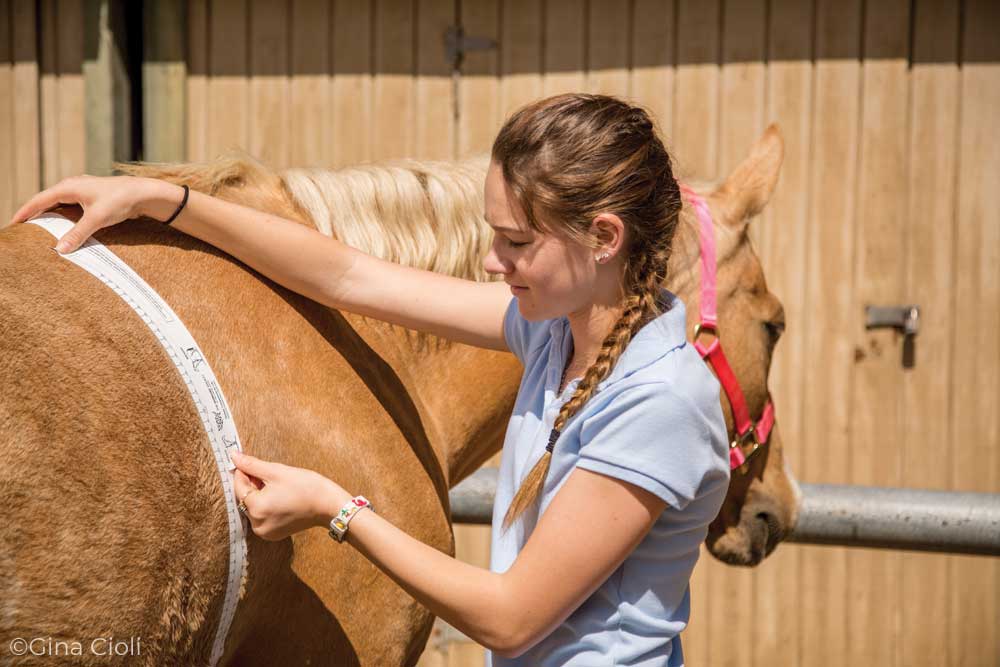
4. Funky Feet
With spring rains come muddy pastures. And muddy horses. And muddy boots. Basically, muddy everything. Standing in very wet conditions for weeks can leave your horse’s feet at risk. For example, smelly black gunk in the frog of your horse’s hoof is characteristic of a disease called thrush, which is caused by bacteria growing in the wet, dark corners of your horse’s soles.
Scratches is another problem sometimes seen in wet conditions. A horse with scratches will have sore, tender pasterns and fetlocks and the skin will be hot and painful to the touch. Sometimes you might see small sores or scabs on the skin.
Keeping your horse’s feet and legs as dry and clean as possible can prevent both of these conditions. Try to pick out your horse’s hooves as often as you can and remove caked mud from his legs, even if you’re not going for a ride. His health will thank you for it, and before you know it, you’ll both be ready for those spring rides.
This article originally appeared in the March/April 2019 issue of Young Rider magazine. Click here to subscribe!


